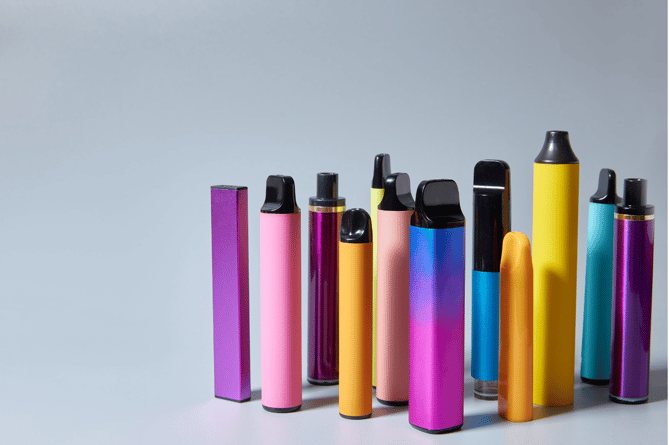Today, Public Health Wales has published new guidance for secondary schools to tackle vaping.
The guidance sets out details of vaping use among young people in Wales and actions schools can take to address vaping.
Figures from the School Health Research Network show that 20 per cent of young people from year 7 to year 11 say they’ve tried vaping, with five per cent of secondary school pupils in Wales vaping at least once a week.

Health and Well-being is a mandatory part of the new Curriculum for Wales, and the guidance provides opportunities to introduce learning about vaping and vaping devices. This should be delivered as part of broader substance misuse education.
The guidance also includes advice for schools to expand their smoking and behaviour policies to address the rise in vaping. Schools are encouraged to develop this with learners, staff and their wider school community.
The Minister for Education and Welsh Language, Jeremy Miles said: " No one under 18 should be vaping. Schools are telling us this is a real issue, whether it's because of peer pressure, colourful marketing targeted at children or a lack of understanding of the potential health risks. I hope this new guidance will help pupils understand the impact of vaping so they can make the right decisions.
"Our new curriculum gives teachers the flexibility to adapt their lessons to suit issues and challenges facing their pupils this should include learning about the health and well-being impacts of vaping. All secondary schools are now teaching this curriculum to years 7 and 8, and this resource will support all secondary school pupils."
The Deputy Minister for Mental Health and Wellbeing, Lynne Neagle said:
“Vapes have no place in the hands of children and young people and supporting people to have a smoke-free childhood is a priority.
“Giving our young people the tools they need to stay healthy is an important way we can help them to improve their health and wellbeing. This guidance will help schools to highlight the health risks of vaping and support young people who may be addicted and wish to stop.”
Dr Julie Bishop, Director of Health Improvement at Public Health Wales, said:
“Our work with the multi-agency incident response group has highlighted significant new challenges that our education settings are experiencing when responding to vaping among young people in Wales. We hope this comprehensive guidance will provide the first step in supporting education staff in addressing this growing issue.”




